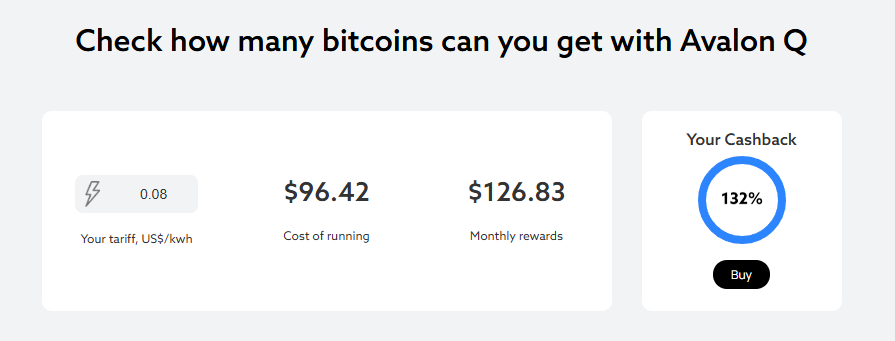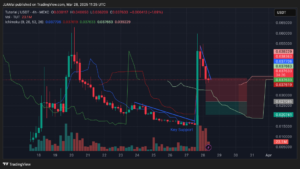Last updated:
 Why Trust Cryptonews
Why Trust Cryptonews

Canaan, a major manufacturer of Bitcoin miners, has unveiled Avalon Q, its new professional-grade Bitcoin mining machine for home users.
According to the press release, the product makes professional Bitcoin mining accessible to ordinary individuals. It merges institutional-level computing power, household power compatibility, and low operating sound.
NG Zhang, Founder and CEO at Canaan, argues that Avalon Q democratizes Bitcoin mining, enabling operations outside mining facilities. “Cryptocurrency enthusiasts no longer need to choose between powerful mining capabilities and residential compatibility,” he says.
Furthermore, the company claims that it has seen a growing interest in home-based Bitcoin mining. It’s not just about equipment, it suggests. Rather, people also want greater control over their crypto operations.
“We’re seeing significant demand from individuals who want to be more than just Bitcoin investors – they want to be active participants in the network,” Zhang says. “The Avalon Q gives them that opportunity without requiring a dedicated mining facility.”
Therefore, the announcement notes, home Bitcoin mining provides an investment opportunity and a way to contribute to the network security.
The Avalon Home series includes Avalon Q, Avalon Mini 3, and Avalon Nano 3S.
You might also like
‘132% Cashback Monthly’
According to the company, the novel Avalon Q is the first professional-grade Bitcoin miner to support 110V home power globally.
Canaan notes that the product offers up to 90 TH/s hash power with adjustable consumption (800W-1600W). This makes it adaptable to standard home electrical systems, enabling home miners “to optimize their operation based on electricity costs and mining profitability.”
Furthermore, the company compares the machine to a quiet library. It says that, unlike industrial mining rigs, the Avalon Q operates at 45 dB. According to various online sources, a single Bitcoin mining rig in a facility typically reaches 70-90 dB.
Therefore, Canaan says that people can operate their machine anywhere in their house, including the basement or garage.
Other Avalon Q’s key features include durability, 360-day guarantee, and the Avalon Family APP, which enables simple plug-and-mine functionality for both beginners and experienced miners;
The company’s website claims users can earn 132% cashback monthly.

Moreover, home miners connect to the F2Pool mining pool via the Avalon Family App.
The Avalon Q is available for preorder until the end of April, with a price tag of $1,599.
Meanwhile, on 26 March, Canaan shared its financial results for 2024. The company posted $88.8 million in total revenues for Q4, exceeding its projected guidance of $80 million. This is an 80.9% year-over-year increase. Also, the total revenues for 2024 was $269.3 million, a year-over-year increase of 27.4% from $211.5 million in 2023.
Also, several days ago, the company also announced that it expanded its self-mining capabilities at two new partners’ mining facilities in Pennsylvania and Texas, USA. It plans to install the majority of the expected hashrate by the second quarter of 2025.
You might also like















